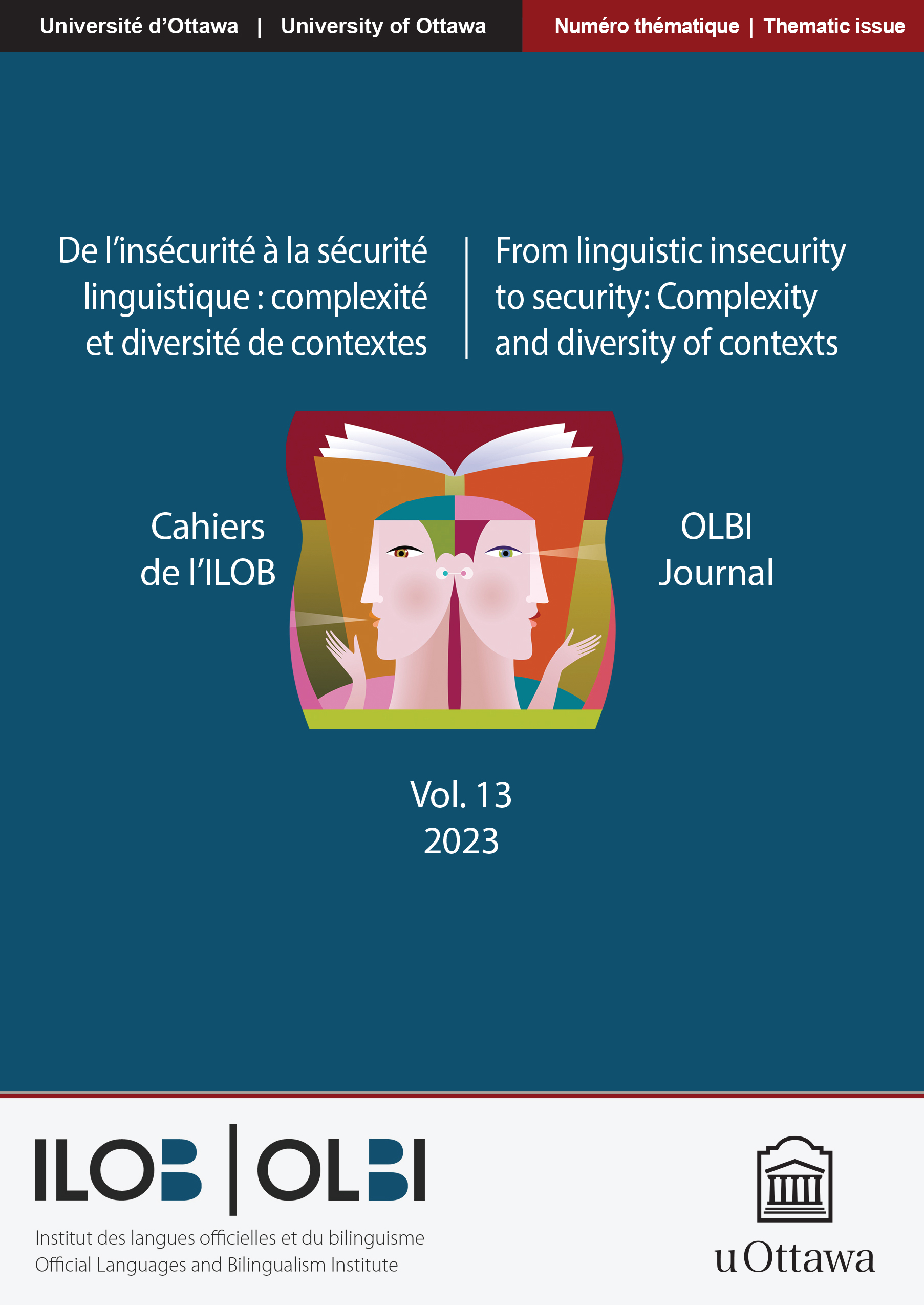L’insécurité linguistique dans l’espace scolaire réunionnais en cours d’anglais
DOI:
https://doi.org/10.18192/olbij.v13i1.6635Keywords:
diglossia, English teaching and learning, Reunion Island, linguistic insecurity, plurilingualism, monolithic French educational systemAbstract
Linguistic insecurity may occur in a diglossic environment like Reunion Island, where French, the dominant, official language, is also the language of schooling. The native language with low prestige is Creole. The collected and analyzed data includes: language learners’ profiles, class observations, oral and written tasks in English language, and teachers’ interviews. Great efforts have to be achieved in the Reunionese school community to legitimize and enhance the use of Creole, even though it is recognized as a regional language. This article focuses on the progress of linguistic insecurity from the Reunionese macro-system to English classes on Reunion Island. According to the learners’ profiles, this insecurity may vanish. We thus examine the drawbacks of fragile skills in the French language partly linked to French-Creole contact mixing languages, to an unsuitable pedagogy, and the limitations of a monolithic French education system when learning a foreign language, such as English, in a plurilingual environment.
Downloads
Published
Issue
Section
License
Copyright (c) 2023 Nadia Vingadessin

This work is licensed under a Creative Commons Attribution 4.0 International License.
Authors who publish with OLBI Journal agree to the following terms:
- Authors retain copyright and grant the OLBI Journal (OLBIJ) right of first publication with the work simultaneously licensed under a Creative Commons Attribution License that allows others to share the work with an acknowledgement of the work's authorship and initial publication in the OLBIJ.
- Authors are able to enter into separate, additional contractual arrangements for the non-exclusive distribution of the OLBIJ's published version of the work (e.g., post it to an institutional repository or publish it in a book), with an acknowledgement of its initial publication in the OLBIJ.
- Authors will not simultaneously submit the same piece of work for possible publication to more than one academic journal at a time.


